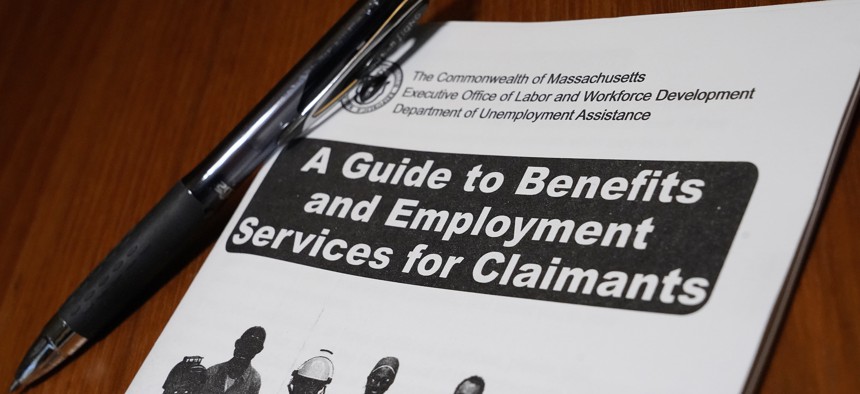8 States Ask for Further Interest Reprieve on Unemployment Loans

AP Photo/Elise Amendola, File
An interest waiver on the federal loans to states expired in September. Now states that face millions in borrowing costs are looking for more of a break.
Eight states that collectively borrowed billions of dollars from the federal government to help cover unemployment insurance benefit payments are asking the Biden administration to support reinstating an interest waiver for the loans.
Under coronavirus relief laws Congress approved during the past two years, the federal government temporarily waived interest payments and accruals on the loans, known as Title XII advances. But the interest holiday expired Sept. 6. Now, states that have balances outstanding are faced with the prospect of millions of dollars in borrowing costs.
“Taxpayers should not be on the hook for interest just because the pandemic is lasting longer than projected,” Illinois Comptroller Susana Mendoza said in a statement. “States are wrestling with how best to replenish their COVID-depleted unemployment funds and they should not have to do that with the meter running.”
States can turn to the advances if their unemployment accounts are running short, which is more likely during an economic downturn when more people are turning to the benefits and payroll taxes that cover them decline. During the earlier months of the pandemic in particular, unemployment insurance programs saw a historic wave of applicants amid business closures and other economic turmoil.
$39 Billion in Outstanding Balances
Overall, nine states and the Virgin Islands have outstanding loan balances totaling about $39 billion, according to federal figures. Interest accrued by states on advances so far during federal fiscal year 2022, which began Oct. 1, is about $201 million.
Illinois has a roughly $4.5 billion balance outstanding. Mendoza's office noted that the state owes around $20 million in interest on the money it borrowed, and that this total could reach $100 million if it goes unpaid for a year.
Finance officials from seven other states—New York, Colorado, Pennsylvania, Connecticut, New Jersey, Massachusetts and Minnesota—joined Mendoza sending a letter to Treasury Secretary Janet Yellen Tuesday asking that interest on the advances to be paused at least through June 30 of next year.
"We believe the waiver deadline was originally determined under the assumption that the pandemic would likely be over and that the economy and state governments would be in recovery mode. However, it is quite plain to see that this public health crisis is not over, and the benefit provided by this interest waiver is still necessary," the officials wrote.
California, the state with the largest outstanding balance, at about $19.4 billion, did not have an official who signed onto the letter.
A number of states have paid off the loans since last year. A Congressional Research Service report from December 2020 notes that 20 states had advances on the books at that time.
When states are light on funding for their unemployment programs and have to borrow, they can get into situations where they need to raise taxes on employers or cut benefits in order to shore up their funds. Another way that states have replenished their accounts in recent months is by tapping federal pandemic aid.
Researchers with the the left-leaning Economic Policy Institute said last month that, at that time, at least 16 states had together devoted about $15.7 billion of American Rescue Plan Act funding for their unemployment insurance trust funds and that this came after 23 states used pandemic aid from the earlier CARES Act for the funds.
Bill Lucia is a senior editor for Route Fifty and is based in Olympia, Washington.
NEXT STORY: How to Help All Families Save for College






